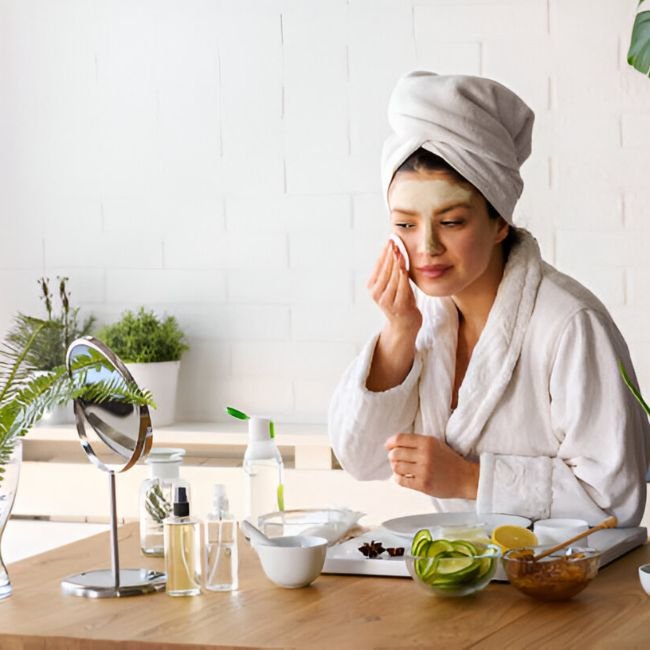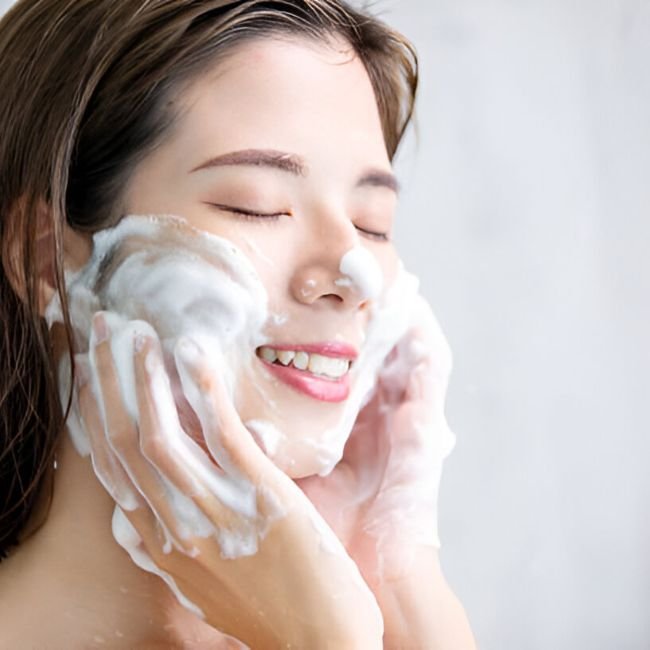Pregnancy is a beautiful journey filled with anticipation, joy, and many changes, especially to your body and skin. Navigating these changes can be challenging, but with the right information and skincare routine, you can maintain that pregnancy glow while ensuring the safety of your baby.
Importance of Skin Care During Pregnancy
Your skin undergoes significant changes during pregnancy due to hormonal shifts, increased blood flow, and the stretching of your skin. Proper skin care is essential not only for your confidence and comfort but also for addressing specific pregnancy-related skin issues safely.
Understanding Pregnancy Safe Skin Care
Definition of Pregnancy Safe Skin Care
Pregnancy safe skin care involves using products and ingredients that are safe for both the expectant mother and the developing baby. This means avoiding certain chemicals and opting for gentler, non-toxic alternatives.
Why It Matters
Some ingredients commonly found in skin care products can penetrate the skin and potentially harm your developing baby. Ensuring that your skin care routine is pregnancy-safe helps prevent any adverse effects and supports your overall well-being.
Common Skin Issues During Pregnancy
Acne
Hormonal fluctuations can lead to breakouts even if you’ve never had acne before. It’s important to address this gently to avoid further irritation.
Stretch Marks
As your body grows, the skin stretches, which can lead to stretch marks. These often appear on the belly, breasts, thighs, and hips.
Hyperpigmentation
Also known as the “mask of pregnancy,” hyperpigmentation can cause dark patches on your face due to increased melanin production.
Sensitivity and Redness
Increased blood flow can make your skin more sensitive and prone to redness and irritation.
Ingredients to Avoid in Skin Care Products
Retinoids
Found in anti-aging products, retinoids can be harmful to your baby and should be avoided during pregnancy.
Salicylic Acid
Commonly used for acne treatment, high doses of salicylic acid can be risky.
Hydroquinone
Used for hyperpigmentation, hydroquinone is absorbed in significant amounts and should be avoided.
Parabens
These preservatives can disrupt hormone function and are best avoided.
Phthalates
Often found in fragrances, phthalates can interfere with hormone development.
Safe Ingredients for Pregnancy
Vitamin C
An excellent antioxidant that can help with pigmentation and brighten the skin.
Hyaluronic Acid
Great for hydration and maintaining the skin’s moisture barrier.
Niacinamide
A versatile ingredient that helps with redness, pigmentation, and acne.
Azelaic Acid
Safe for treating acne and rosacea during pregnancy.
SPF (Sunscreen)
Essential for protecting your skin, especially as it becomes more sensitive to the sun.
Daily Skin Care Routine for Pregnant Women
Morning Routine
- Cleanser: Use a gentle, hydrating cleanser.
- Vitamin C Serum: Apply for antioxidant protection.
- Moisturizer: Choose a fragrance-free, hydrating moisturizer.
- SPF: Apply a broad-spectrum sunscreen with at least SPF 30.
Evening Routine
- Cleanser: Remove makeup and impurities with a gentle cleanser.
- Hydrating Serum: Apply a serum with hyaluronic acid.
- Moisturizer: Use a nourishing night cream.
- Spot Treatment: Apply azelaic acid for acne if needed.
Weekly Treatments
- Exfoliation: Use a mild, enzyme-based exfoliator once a week.
- Mask: Treat your skin to a hydrating or soothing mask.
Natural and DIY Skin Care Options
Benefits of Natural Skin Care
Natural products can be gentler on the skin and reduce exposure to harmful chemicals.
DIY Recipes for Pregnant Women
- Honey and Oatmeal Mask: Mix honey with oatmeal for a soothing and hydrating mask.
- Aloe Vera Gel: Use pure aloe vera gel for calming irritated skin.
- Coconut Oil: Great for moisturizing and soothing dry skin.
Choosing the Right Skin Care Products
Reading Labels
Learn to read ingredient labels and understand what’s in your products.
Trusted Brands
Look for brands that are known for their pregnancy-safe formulations.
Consulting with a Dermatologist
Always consult with a dermatologist if you’re unsure about a product’s safety.
Pregnancy Skin Care Myths Debunked
Myth: Natural Products are Always Safe
Not all natural ingredients are safe for pregnancy. For example, essential oils can be potent and should be used with caution.
Myth: Stretch Marks Can Be Completely Prevented
While you can minimize their appearance, genetics play a significant role in stretch marks.
Myth: You Can Use Your Regular Skin Care Products
Some of your favourite products might contain harmful ingredients. It’s important to switch to pregnancy-safe options.
Postpartum Skin Care
Addressing Post-Pregnancy Skin Changes
Hormones continue to fluctuate after delivery, so maintain a gentle skin care routine.
Continuing Safe Skin Care Practices
Stick to pregnancy-safe products until you stop breastfeeding to ensure your baby’s safety.
Conclusion
Taking care of your skin during pregnancy doesn’t have to be complicated. By understanding which ingredients to avoid and which ones are safe, you can adapt your routine to keep both you and your baby healthy. Prioritize your skincare, and enjoy the glow that comes with this beautiful journey.
FAQs
Is it safe to use retinol during pregnancy?
No, retinol and other retinoids are not safe during pregnancy due to the risk of birth defects.
Can I get a facial while pregnant?
Yes, but make sure to inform your esthetician about your pregnancy so they can use safe products.
What can I do to prevent stretch marks?
Hydrate your skin regularly with oils and creams, and maintain a healthy diet to support skin elasticity.
Are there any specific brands recommended for pregnancy skincare?
Brands like Belli, Earth Mama, and Mama Mio are known for their pregnancy-safe formulations.
How soon after delivery can I return to my regular skincare routine?
It’s best to wait until you stop breastfeeding to ensure all products are safe for your baby.




